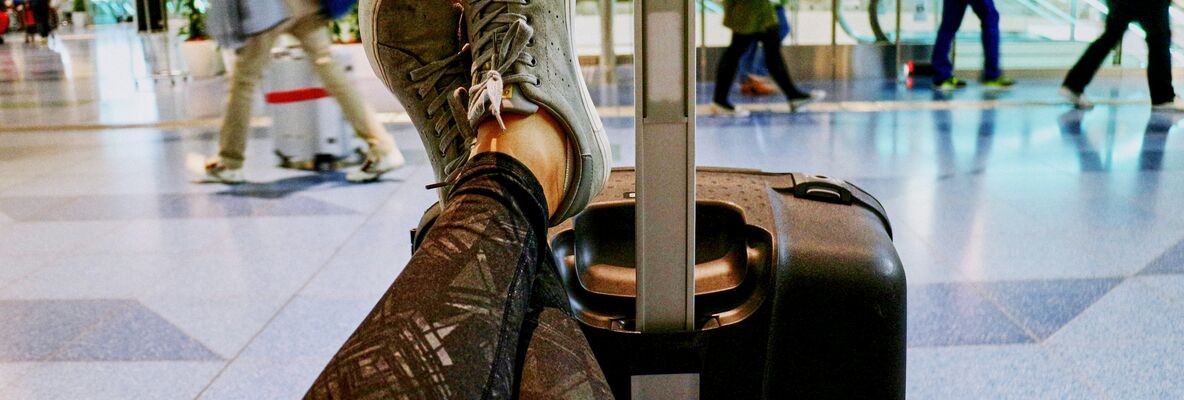We use cookies to enhance your experience. Basic cookies are essential for the proper working of this website. For example, they save your language preferences. They also help us gather anonymous information about the use of our site. More information in our Cookie Policy.
Education has always been seen as a significant investment. Several studies even claim that a child costs the equivalent of a house. But what’s the reality? Can we really consider buying a property or having children to be the same thing? And if so, how can you prepare for it?
In reality, the cost of a child is not easy to pin down. There are three main ways of calculating the cost of a child's needs. The first analyses what parents spend on their children using household budget surveys. This is the empirical cost. The second method, used by economists, refers to what parents would have to be given to maintain their standard of living before having children. The third approach, the so-called normative approach, consists of defining a priori a basket of goods and services that covers children's essential needs.
Based on this latter approach, STATEC, the Luxembourg institute for statistics and economic studies, came to the conclusions it sets out in its latest "Rapport travail et cohésion sociale" published in April 2022. In this report, STATEC indicates that the direct budget for children ranges from €334 per month for a 6-month-old baby to €744 per month for a 17-year-old girl.
A highly variable budget during early childhood
Contrary to what you might think, this increase is not linear. It is only linear from the age of 5 on. During early childhood, the variations are greater. For example, the minimum budget for children up to the age of 3 is higher than that for a 5-year-old. At the age of 18 months, a child costs an average of €411 a month, compared to €332 for a 5-year-old.
There are several reasons to explain this difference:
- The first is the initial investment (furniture, clothes, pushchair, etc.). The best way to reduce this cost is to buy second-hand equipment. There are active Facebook groups offering online sales(Bébé an Kanner Secondhand, Kanner an Bébé Secondhand, etc.). The social impact company Kannersecondhand4Kids Kasecha has set up an online marketplace that puts you in touch with private sellers. E-commerce sites regularly offer end-of-series and reconditioned products at low prices.
- Next come nappies and baby food. Here too, you can reduce the bill by making your own meals and using washable nappies.
- Childcare costs are also a major item. According to the "Combien coûte? website, which compares more than 60 goods and services in every country in the world, the average price of a crèche in Luxembourg in 2023 is €1,056.7 per month. Although the Luxembourg government has set up a financial aid scheme called the Chèque-Service-Accueil (CSA), places are still scarce and expensive. In this case, you or your partner may need to consider reducing your working hours.
A linear increase from the start of school onwards
Compulsory schooling begins at the age of 4. Good news! Since September 2022, schoolchildren in basic education (nursery and primary sections) benefit from a partially free public service. In the same way as schools, services provided by childcare facilities such as halfway houses, day centres and parental assistants, as well as midday meals, are no longer charged for during school weeks. Of course, this free service only applies to state schools in Luxembourg. If you decide to enrol your child in a fee-paying private school, you'll need to budget a lot more!
That said, if your child is young or you don't yet have one, much can change between now and then. The extension of compulsory schooling until the age of 18 is due to be voted on soon, so it cannot be ruled out that free canteen meals during school weeks will also apply up to that age.
It remains to be seen whether this measure will have an impact on teenagers' budgets. Young 15 to 18 year-olds want to break away from certain organised activities and be free to make their own decisions in areas such as food, clothing and social life.
Indirect costs to be taken into account
A child's minimum budget is not limited to his or her direct needs. Having one or more children also entails a series of indirect costs, such as a larger home, higher heating, electricity and water bills and a bigger car. According to STATEC, the minimum budget for these indirect costs for a couple without children is €2,933 per month, and €2,350 per month for a single adult (July 2022 figures). The additional budget required by couples with one or more children varies between +23% and +77%, i.e. ranging from €3,608 (for a couple with one child aged 0-6) to €5,186 (for a couple with three children)!
How can we best prepare for the future?
Your choices can have a major impact on the cost of bringing up a child. It's important to have a clear idea of what you need to spend and how. Even if your children are young, you can already start saving for their future education. Most banks offer special products for this purpose, such as student loans. You can also start by opening a savings account for your child. Thanks to compound interest, a monthly deposit of €100 over 18 years can add up to a handsome sum.
09/2023
-
Student employees’ rights and obligations

As a student, you might want to make some extra money and gain some paid work experience. Very good idea, but do you know your rights and obligations as a student employee?
-
What formalities to follow at your arrival in Luxembourg

If you have just arrived in Luxembourg or if you intend to come into the country in the near future, one of your first steps will be the opening of a bank account. But which bank to choose?
-
What is the best way to save money when planning a holiday?

Deciding how to spend a well-deserved summer holiday can be exciting. Should you go back to a favourite location, or try something new? But there can be tricky trade-offs, such as whether to decide early and book ahead or wait as long as possible in the hope of finding a better deal.